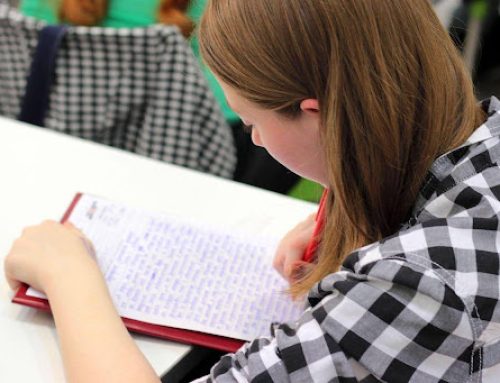Plagiarism’s Consequences and What Every Student Should Know
As a student, you might feel that copying others’ work is indeed a simple, effortless, and efficient way to finish the assignments on time and maintain a good grade.
But unfortunately, that’s not how things work. Plagiarism in academia is treated the same as “theft.” If you have a habit of copying others’ content, then you must already be aware of the consequences. It can significantly hurt both your academic and professional future.
The purpose of education is to encourage you to develop original thinking habits and have your opinions on every topic. But when you breach this principle, it can surely result in severe repercussions.
But the question here is, what are the consequences of plagiarism and what are the things that every student should know?
Well, we have exactly answered these questions in this article. So, keep scrolling.
What is Plagiarism?
Plagiarism means copying someone else’s work and presenting it as your own without giving the creator any proper credit or attribution. It can be both intentional and unintentional. However, one thing is clear in both cases, plagiarism faces the same consequences. Mostly plagiarism occurs when:
- You copy content from a source.
- Closely paraphrase the content.
- Submit someone else’s work as yours.
Moreover, sometimes even if your content includes improperly cited or poorly paraphrased ideas, it is counted as plagiarized. Students mostly catch plagiarism when they are tight on deadlines or fail to manage their time and sources properly.
5 Most Common Consequences of Plagiarism
Here are the 5 most common yet serious consequences that a writer has to face if their content is caught plagiarizing.
1. Academic Penalties
Plagiarism is a serious offense in academia. Hence, institutes have serious policies and rules against plagiarism. So, owing to this, if a student’s work contains duplication, they might fail the exam or even the entire course.
Mostly, first-time offenders only receive a warning, but if the violation continues, then the consequences are more serious and strict.
Some institutes even add a note to the student’s academic record, declaring them a plagiarist. Thus, this can severely affect future opportunities. Notably, these consequences are not just limited to affecting the grades, however, they can even damage your reputation.
2. Loss of Credibility
When you directly copy someone else’s work, it clearly indicates that it lacks your personal effort, honesty, and creativity. The purpose of assignments and homework is to check the understanding and original thinking of students, so when a student copies the content, it’s clear that the purpose of learning and evaluation is defeated.
Not only this, but it also breaks the teacher’s trust in the student. Remember, if you’re aiming for scholarships, internships, or recommendation letters, credibility matters. So, if you have lost the teacher’s trust, it’s indeed hard to rebuild.
3. Legal and Copyright Issues
The consequences of catching plagiarism in your work are not just limited to school issues. However, the matter also involves many legal consequences.
Notably, when you copy content from books, websites, or other published materials without permission, it is undeniably an infringement of copyright laws. Thus, if you copy and use their content in your presentations, publications, or blogs, the creator has the legal right to file a complaint against you or even charge you heavy fines.
4. Damaged Career Opportunities
When hiring, employers often check the academic integrity of the candidates, especially in fields of writing, journalism, research, and education. Therefore, if you have past records of duplication, then it can cause you to lose a job opportunity or internship.
Moreover, even after getting hired, if a company finds out your work isn’t original, it can cost you your job. Students planning to go into academia or apply for graduate school face even higher scrutiny.
Thus, a single dishonest act can raise doubts about your ethics and reliability. Academic honesty helps you build a career based on skill and integrity.
Things Every Student Should Know About Plagiarism
Here are some essential tips that every student should know if they actually want to prevent plagiarism in their writing.
1. Check Similarities
To prevent your work from containing unintentional plagiarism, you must check duplicate content online and compare your text against thousands of published sources. This process makes revising your work easier, paraphrasing effectively, or providing accurate citations where necessary to maintain originality and credibility.
2. Learn to Rewrite and Refine Content
When writing, don’t simply copy someone else’s content. Instead, take your time to read the information thoroughly and understand the main theme and idea. Once you grasp the essence, take a short break and then rewrite it in your own words.
This approach helps you develop critical thinking and avoid plagiarism. However, if you still feel that your writing reflects the tone, style, or structure of the original content, you can use a plagiarism remover to refine your work and eliminate any traces of duplication.
Such a tool rewrites your text and gives it a fresh, original look. This not only improves the clarity of your writing but also ensures the content is truly your own
3. Citing Isn’t Optional
Every time you use someone else’s idea, quote, or data, even if you paraphrase it, you must cite the source. However, the students mostly think that citation is only necessary for direct quotes. In reality, you have to cite every borrowed idea in your content.
Thus, when researching, keep a list of all the resources you have referred to for information. Citations give credit to original authors and strengthen your argument by showing evidence.
Moreover, they also allow readers to trace your sources. Thus, you must treat it as a normal part of writing, not an afterthought, if you actually want to avoid catching plagiarism.
4. Separate Common Knowledge and Original Ideas
Many students get confused about what needs to be cited. A good rule is this: if the information is common knowledge, like basic historical facts or widely known concepts, then don’t cite it.
However, if you are copying someone’s unique idea, analysis, or specific data, you have to give them their deserving credit. Otherwise, your content will surely be flagged as plagiarized.
5. Don’t Copy Yourself
Do you know your content can catch plagiarism if you even use your own published work without citing it? Surprised right?
Mostly, the writers think that it’s legal to use their own research in different projects, but if you reuse your past assignments or parts of them in new submissions, it will be counted as self-plagiarism.
Thus, most schools don’t allow it without permission. Therefore, if you want to refer to your previous work in the new content, first ask the teacher. Moreover, even when reusing your ideas, make sure the writing is fresh and fits the current task.
Conclusion
Taking shortcuts in school may seem harmless, but the cost of getting caught isn’t worth it. Plagiarism isn’t just about broken rules; it’s about missed chances to grow, learn, and show what you’re really capable of. Instead of cutting corners, focus on building habits that push you to think, write, and express ideas in your own way. That’s what sets you apart—not just in school, but wherever you go next. Every assignment is a chance to build credibility and sharpen your skills. Own your voice. That’s the real win.





